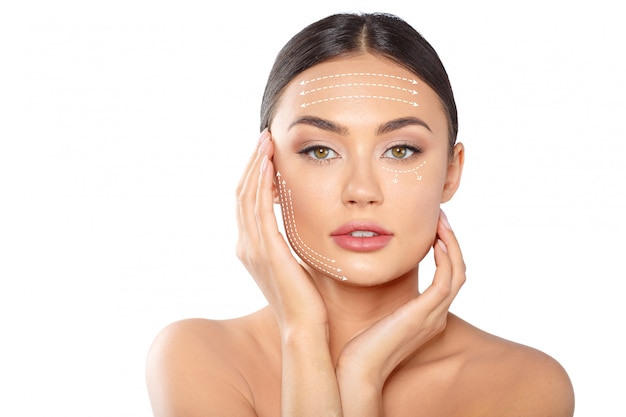What Is Collagen and What Does It Do?
Table of Contents
- What Is Collagen?
- Which Role Does Collagen Play in Our Body?
- What Are the Contributions of Collagen to Skin Health?
- What Are the Signs of Collagen Deficiency?
- Does Collagen Improve Hair Health?
- Does Collagen Affect Joint Health?
What Is Collagen?
Collagen is a fundamental protein in the human body. It is composed of proteins and is found in the structure of many body parts such as the skin, bones, muscles, tendons, and connective tissues. Collagen is one of the most abundant proteins in the body and helps maintain the elasticity of our skin, the durability of our hair, and the strength of our nails.
What Is the Role of Collagen in Our Body?
Collagen is a fundamental protein type for our body with several crucial roles. It is a major component of structures like the skin, bones, muscles, and connective tissues. Collagen enhances the resilience of these tissues, contributing to the integrity of bones and joints. It also increases the skin's elasticity and prevents the formation of wrinkles. Collagen facilitates the movement of muscles and supports tendons. The presence of collagen is critical to maintaining and strengthening the structure of various tissues throughout our body.
What Are the Contributions of Collagen to Skin Health?
Collagen is considered an essential component for skin health. This protein prevents wrinkle formation by increasing skin elasticity, promoting a youthful and healthy appearance. It also helps maintain the firmness and strength of skin tissue, resulting in a smoother and more vibrant complexion. Collagen maintains the skin's moisture balance, preventing dryness and irritation. Therefore, many skincare and cosmetic products advertise their collagen content. Supporting collagen for skin health is important for achieving a youthful and radiant complexion.
What Are the Signs of Collagen Deficiency?
Collagen deficiency is a condition that can negatively affect the functionality of the body. This deficiency can lead to problems in various body areas, particularly the skin, joints, and connective tissues. Skin can lose elasticity, wrinkles may increase, and the skin can become dull. Joint pains and stiffness are also common symptoms. Hair loss and nail weakness can be signs of collagen deficiency. These symptoms can vary from person to person, but recognizing and addressing collagen deficiency is essential. Without proper measures, these issues can worsen over time.
Does Collagen Improve Hair Health?
The relationship between collagen and hair health is significant. Collagen supports the structure of hair strands and can help prevent hair loss. Hair largely consists of collagen protein, which preserves the strength and elasticity of hair.
Collagen deficiency can lead to hair weakening and loss. Therefore, regularly consuming collagen-rich foods or using collagen supplements is important to support hair health. Additionally, hair care products such as shampoos and hair masks containing collagen can be preferred. However, if you have any hair concerns, consulting a professional is the best course of action.
Does Collagen Affect Joint Health?
Collagen is considered a crucial component for joint health. Joint cartilage, tendons, and connective tissues depend on the presence of collagen. Collagen enhances the durability of these tissues and preserves joint health.
The aging process and wear and tear can cause joint cartilage to thin and deteriorate. This can lead to joint pain and limited mobility. Collagen supplements or collagen-rich foods can help rebuild joint cartilage and improve joint health.

